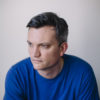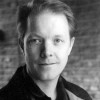Want to know what books Mark O'Connell recommends on their reading list? We've researched interviews, social media posts, podcasts, and articles to build a comprehensive list of Mark O'Connell's favorite book recommendations of all time.
1

The wisest, richest, funniest, and most moving novel in years from Don DeLillo, one of the great American novelists of our time—an ode to language, at the heart of our humanity, a meditation on death, and an embrace of life.
Jeffrey Lockhart’s father, Ross, is a billionaire in his sixties, with a younger wife, Artis Martineau, whose health is failing. Ross is the primary investor in a remote and secret compound where death is exquisitely controlled and bodies are preserved until a future time when biomedical advances and new technologies can return them to a life of transcendent... more The wisest, richest, funniest, and most moving novel in years from Don DeLillo, one of the great American novelists of our time—an ode to language, at the heart of our humanity, a meditation on death, and an embrace of life.
Jeffrey Lockhart’s father, Ross, is a billionaire in his sixties, with a younger wife, Artis Martineau, whose health is failing. Ross is the primary investor in a remote and secret compound where death is exquisitely controlled and bodies are preserved until a future time when biomedical advances and new technologies can return them to a life of transcendent promise. Jeff joins Ross and Artis at the compound to say “an uncertain farewell” to her as she surrenders her body.
“We are born without choosing to be. Should we have to die in the same manner? Isn’t it a human glory to refuse to accept a certain fate?”
These are the questions that haunt the novel and its memorable characters, and it is Ross Lockhart, most particularly, who feels a deep need to enter another dimension and awake to a new world. For his son, this is indefensible. Jeff, the book’s narrator, is committed to living, to experiencing “the mingled astonishments of our time, here, on earth.”
Don DeLillo’s seductive, spectacularly observed and brilliant new novel weighs the darkness of the world—terrorism, floods, fires, famine, plague—against the beauty and humanity of everyday life; love, awe, “the intimate touch of earth and sun.”
Zero K is glorious. less 
Mark O'ConnellSo much of his work is about the confluence of anxieties about death and technology. He combines those things in a really interesting way. (Source)
See more recommendations for this book...
2

The nineteenth and early twentieth century saw the emergence of a controversial school of Russian thinkers, led by the philosopher Nikolai Fedorov and united in the conviction that humanity was entering a new stage of evolution in which it must assume a new, active, managerial role in the cosmos. In the first account in English of this fascinating tradition, George M. Young offers a dynamic and wide-ranging examination of the lives and ideas of the Russian Cosmists.
Suppressed during the Soviet period and little noticed in the West, the ideas of the Cosmists have in recent decades... more The nineteenth and early twentieth century saw the emergence of a controversial school of Russian thinkers, led by the philosopher Nikolai Fedorov and united in the conviction that humanity was entering a new stage of evolution in which it must assume a new, active, managerial role in the cosmos. In the first account in English of this fascinating tradition, George M. Young offers a dynamic and wide-ranging examination of the lives and ideas of the Russian Cosmists.
Suppressed during the Soviet period and little noticed in the West, the ideas of the Cosmists have in recent decades been rediscovered and embraced by many Russian intellectuals and are now recognized as essential to a native Russian cultural and intellectual tradition. Although they were scientists, theologians, and philosophers, the Cosmists addressed topics traditionally confined to occult and esoteric literature. Major themes include the indefinite extension of the human life span to establish universal immortality; the restoration of life to the dead; the reconstitution of the human organism to enable future generations to live beyond earth; the regulation of nature to bring all manifestations of blind natural force under rational human control; the transition of our biosphere into a "noosphere," with a sheath of mental activity surrounding the planet; the effect of cosmic rays and currently unrecognized particles of energy on human history; practical steps toward the reversal and eventual human control over the flow of time; and the virtues of human androgyny, autotrophy, and invisibility.
The Russian Cosmists is a crucial contribution to scholarship concerning Russian intellectual history, the future of technology, and the history of western esotericism.
less 
Mark O'ConnellTheir ideas were every bit as crazy as — actually, probably much much crazier than — today’s transhumanists. There was no sense that the technology was even theoretically in the ballpark of being able to do what they wanted to do back then. (Source)
See more recommendations for this book...
3

The Third Policeman is Flann O'Brien's brilliantly dark comic novel about the nature of time, death, and existence. Told by a narrator who has committed a botched robbery and brutal murder, the novel follows him and his adventures in a two-dimensional police station where, through the theories of the scientist/philosopher de Selby, he is introduced to "Atomic Theory" and its relation to bicycles, the existence of eternity (which turns out to be just down the road), and de Selby's view that the earth is not round but "sausage-shaped." With the help of his newly found soul named "Joe,"... more The Third Policeman is Flann O'Brien's brilliantly dark comic novel about the nature of time, death, and existence. Told by a narrator who has committed a botched robbery and brutal murder, the novel follows him and his adventures in a two-dimensional police station where, through the theories of the scientist/philosopher de Selby, he is introduced to "Atomic Theory" and its relation to bicycles, the existence of eternity (which turns out to be just down the road), and de Selby's view that the earth is not round but "sausage-shaped." With the help of his newly found soul named "Joe," he grapples with the riddles and
contradictions that three eccentric policeman present to him.
The last of O'Brien's novels to be published, The Third Policeman joins O'Brien's other fiction (At Swim-Two-Birds, The Poor Mouth, The Hard Life, The Best of Myles, The Dalkey Archive) to ensure his place, along with James Joyce and Samuel Beckett, as one of Ireland's great comic geniuses. less 
Mark O'Connellthere’s something culturally Irish, but not uniquely Irish, of using logic against itself — of exposing the absurdity that’s inherent in logic, if you know what I mean —that he does incredibly well. (Source)

Joanna WalshFlann O’Brien is very good at the combination of the familiar and the horrifying (Source)
See more recommendations for this book...
4

Mary Shelley began writing Frankenstein when she was only eighteen. At once a Gothic thriller, a passionate romance, and a cautionary tale about the dangers of science, Frankenstein tells the story of committed science student Victor Frankenstein. Obsessed with discovering the cause of generation and life and bestowing animation upon lifeless matter, Frankenstein assembles a human being from stolen body parts but; upon bringing it to life, he recoils in horror at the creature's hideousness. Tormented by isolation and loneliness, the once-innocent creature turns to evil... more Mary Shelley began writing Frankenstein when she was only eighteen. At once a Gothic thriller, a passionate romance, and a cautionary tale about the dangers of science, Frankenstein tells the story of committed science student Victor Frankenstein. Obsessed with discovering the cause of generation and life and bestowing animation upon lifeless matter, Frankenstein assembles a human being from stolen body parts but; upon bringing it to life, he recoils in horror at the creature's hideousness. Tormented by isolation and loneliness, the once-innocent creature turns to evil and unleashes a campaign of murderous revenge against his creator, Frankenstein.
Frankenstein, an instant bestseller and an important ancestor of both the horror and science fiction genres, not only tells a terrifying story, but also raises profound, disturbing questions about the very nature of life and the place of humankind within the cosmos: What does it mean to be human? What responsibilities do we have to each other? How far can we go in tampering with Nature? In our age, filled with news of organ donation genetic engineering, and bio-terrorism, these questions are more relevant than ever. less 
Michael ArringtonShelley wrote this book as a teenager, and most of us read it in high school. Often credited as the first science fiction novel. You can read just about any political viewpoint you want into the book, and there are strong undertones that technology isn’t all good. But what I get out of it is the creativeness that can come with solitude, and how new technology can be misunderstood, even perhaps by... (Source)

Adam RobertsBrian Aldiss has famously argued that science fiction starts with Mary Shelley’s novel, and many people have agreed with him. (Source)

Adam RobertsBrian Aldiss has famously argued that science fiction starts with Mary Shelley’s novel, and many people have agreed with him. (Source)
See more recommendations for this book...
5

The great inventor and futurist Ray Kurzweil is one of the best-known and controversial advocates for the role of machines in the future of humanity. In his latest, thrilling foray into the future, he envisions an event--thesingularity--in which technological change becomes so rapid and so profound that our bodies and brains will merge with our machines.
The Singularity Is Near portrays what life will be like after this event--a human-machine civilization where our experiences shift from real reality to virtual reality and where our intelligence becomes nonbiological and... more The great inventor and futurist Ray Kurzweil is one of the best-known and controversial advocates for the role of machines in the future of humanity. In his latest, thrilling foray into the future, he envisions an event--thesingularity--in which technological change becomes so rapid and so profound that our bodies and brains will merge with our machines.
The Singularity Is Near portrays what life will be like after this event--a human-machine civilization where our experiences shift from real reality to virtual reality and where our intelligence becomes nonbiological and trillions of times more powerful than unaided human intelligence. In practical terms, this means that human aging and pollution will be reversed, world hunger will be solved, and our bodies and environment transformed by nanotechnology to overcome the limitations of biology, including death.
We will be able to create virtually any physical product just from information, resulting in radical wealth creation. In addition to outlining these fantastic changes, Kurzweil also considers their social and philosophical ramifications. With its radical but optimistic view of the course of human development, The Singularity Is Near is certain to be one of the most widely discussed and provocative books of 2005. less 
Mark O'ConnellI wouldn’t be the first to look at him this way but I read Kurzweil’s work as essentially a work of religious mysticism. I think there’s no other way to read it, really. (Source)

Antonio EramThis book was recommended by Antonio when asked for titles he would recommend to young people interested in his career path. (Source)
See more recommendations for this book...
Don't have time to read Mark O'Connell's favorite books? Read Shortform summaries.
Shortform summaries help you learn 10x faster by:
- Being comprehensive: you learn the most important points in the book
- Cutting out the fluff: you focus your time on what's important to know
- Interactive exercises: apply the book's ideas to your own life with our educators' guidance.


